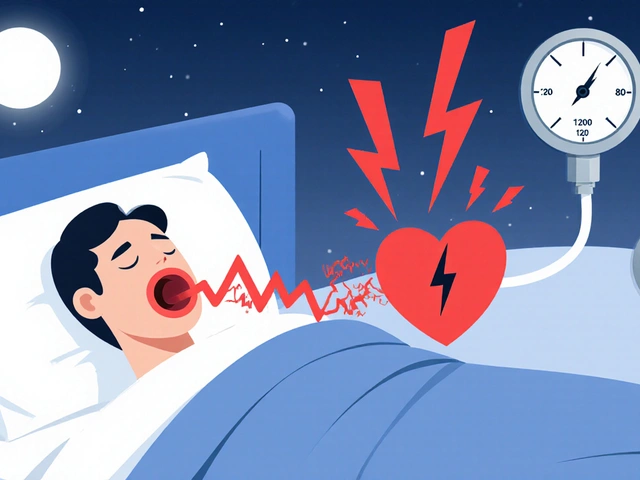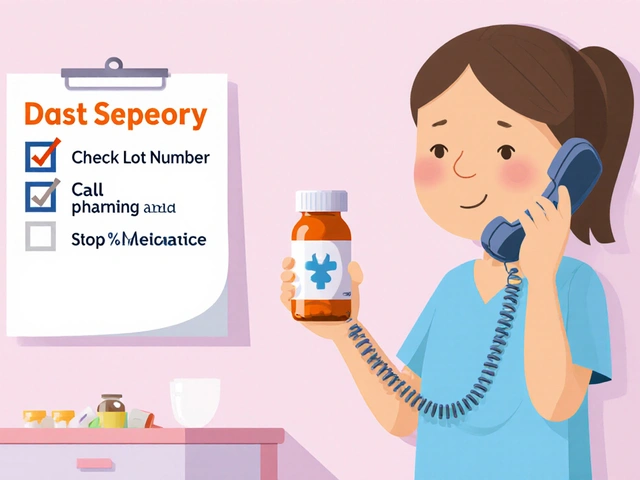Oral care tips that actually make a difference
Your mouth hosts hundreds of bacteria — and small daily choices decide whether they help or harm you. These tips focus on simple, realistic habits: how to brush, what to floss, when to see a dentist, and quick fixes for common problems like sensitivity or dry mouth.
Daily routine: brush, floss, and protect
Brush twice a day with a soft-bristle brush and fluoride toothpaste. Hold the brush at a 45° angle, use gentle circular motions, and spend at least two minutes. Rushing leaves plaque in hard-to-reach spots.
Floss once a day. Slide the floss gently between teeth and curve it into a C around each tooth — don’t snap. If regular floss is hard, try floss picks or interdental brushes; they work better for tight spaces and braces.
Use mouthwash selectively. An antimicrobial mouthwash can cut bacteria for people with gum issues; a fluoride rinse helps if you’re prone to cavities. Avoid using alcohol-based rinses if your mouth gets dry.
Tools, timing, and common fixes
Replace your toothbrush every 3 months or sooner if bristles fray. Electric toothbrushes help many people brush more effectively, especially those with limited mobility or who rush.
If your teeth are sensitive, switch to a desensitizing toothpaste and avoid aggressive brushing. Sensitivity often comes from gum recession or enamel wear — if it persists, book a dental checkup. For bleeding gums, improve brushing technique and floss daily; persistent bleeding needs professional assessment.
Dry mouth (xerostomia) raises cavity risk. Sip water often, chew sugar-free gum with xylitol to boost saliva, and avoid caffeine and tobacco. If medications cause dry mouth, talk to your doctor about alternatives or saliva substitutes.
Watch your diet: cut down on sticky sweets and limit acidic drinks like soda and fruit juice. Eating cheese, raw vegetables, or nuts after a meal helps neutralize acid and stimulate saliva. If you snack frequently, choose low-sugar options and rinse your mouth with water afterward.
Travel and on-the-go care: carry a travel toothbrush or chew sugar-free gum after a meal when brushing isn’t possible. A small tube of fluoride toothpaste or a fluoride rinse in your bag can protect teeth on busy days.
See your dentist every 6–12 months. Regular checkups catch problems early and include professional cleanings that remove tartar you can’t get at home. If you have diabetes, heart disease, or take medications that affect oral health, tell your dentist so they can tailor care to your needs.
Minor emergencies: for a knocked-out tooth, keep it moist in milk or saliva and get to a dentist fast. For severe pain or swelling, seek care right away — these signs can signal infection.
Small changes add up. Better brushing, consistent flossing, smarter snacking, and regular dental visits keep your mouth healthy and cut down future problems. If a habit doesn’t help or causes pain, adjust it and ask a professional for specific advice.

Enalapril and Dental Health: Tips for Oral Care
As a blogger, I recently came across the topic of Enalapril and its impact on dental health. Enalapril, a medication commonly used to treat high blood pressure, has been linked to certain oral health issues such as dry mouth, gum swelling, and taste disturbances. To maintain good oral hygiene while taking Enalapril, it is essential to drink plenty of water, practice regular dental care, and visit your dentist for check-ups. If you experience any side effects, don't hesitate to discuss them with your healthcare provider. Remember, taking care of your dental health is crucial for overall well-being, especially when on medications like Enalapril.
View More



